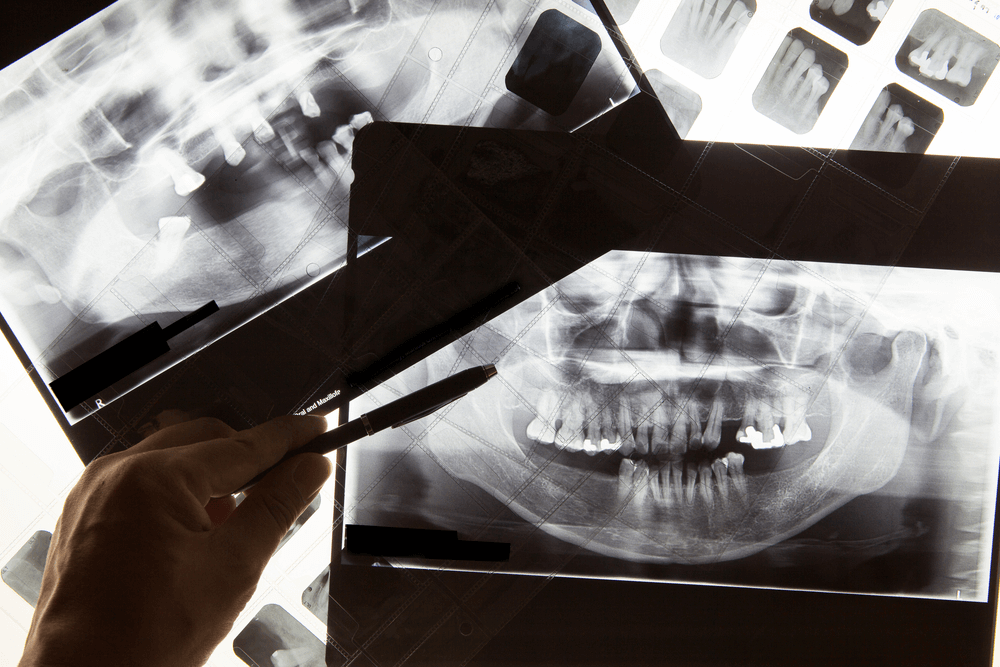

Dr. Sharma has successfully straightened a lot of teeth at his Abbotsford and Surrey orthodontic clinics and he’s known for handling some of the most complex cases. What many people don’t know is that sometimes orthodontics alone isn’t enough to create a perfectly aligned bite and gorgeous smile. In these cases, orthognathic surgery (the fancy way of saying corrective jaw surgery or surgical orthodontics) can be used in conjunction with braces – or Invisalign too if Dr. Sharma’s on the job – to achieve the desired outcome. When a patient requires surgical orthodontics, it’s a team effort and Dr. Sharma works with their oral and maxillofacial surgeon for comprehensive care and stellar results.
What is Jaw Surgery?
Orthognathic surgery, or jaw surgery, involves straightening and repositioning the jaw to fix dental and skeletal irregularities. The exact approach will depend on the specific issue but the surgeon will make cuts in the jawbones and move them into the correct alignment before securing them in their new places with plates and screws. Jaw surgery is performed in a hospital under general anesthesia and typically requires a stay of one to three days. It could take two to four weeks before the patient is able to return to work or school.
What Makes our Approach to Jaw Surgery Different
Jaw surgery is usually only part of the solution. When Dr. Sharma’s patients undergo surgery, they typically kick off the process with a course of braces or Invisalign for one year. Then, after surgery, he finishes straightening the teeth for an additional year or so to settle the bite and detail. The braces are used to lock the bite together intra-operatively so the jaws do not waver during the healing period. With Invisalign, you don’t have this luxury of “locking” the bite, so many orthodontists and surgeons don’t use Invisalign for surgical cases. That’s where Aura Orthodontics is different. With a few modified techniques, the help of rigid fixation intra-operatively (plates and screws) to lock the bite and forward thinking practitioners, we can use Invisalign in surgical orthodontics and still yield great results. Dr. Sharma works with a surgeon in BC, who is one of only a handful in the world doing orthognathic cases with Invisalign.
Why Jaw Surgery Might be Necessary
Braces and Invisalign do an excellent job or whipping the teeth into shape but when malocclusion, or an improper bite, is due to the structure of the bones, orthodontic surgery might be the best solution. We’ve said it a bunch of times and we’ll say it again, following the recommendations of the American and Canadian Associations of Orthodontists and getting your child in for an appointment with an orthodontist by age seven can have a huge payoff. At this point, their jaw is still developing and if there are issues we can address them early and at times avoid surgery altogether. However, when jaw irregularities are due to things like a birth defect or trauma to the face, it may be unavoidable.

Jaw surgery is typically only performed on adults or older teens when their jaws are completely done growing. In addition to the aforementioned birth defects or facial injuries, surgery could also be required due to chronic jaw pain, an open bite, a “gummy” smile, not enough or too much teeth showing, a severe crossbite or a protruding or receding jaw.
The Benefits of Jaw Surgery
Surgical orthodontics can dramatically improve patients’ facial appearance and give them a perfect smile and serious boost in confidence. Yet, most importantly, it can help people live more comfortably by alleviating jaw pain and allowing patients to speak, chew, swallow and breathe easier.
The first step in deciding on orthodontic treatment, whether it includes jaw surgery or not, is scheduling a free consultation at Aura Orthodontics. Dr. Sharma will examine you, discuss your goals and present you with your options. If orthodontic surgery is necessary, he’ll work with your surgeon to ensure the entire process runs as smoothly as possible and you get permanent results you love.





